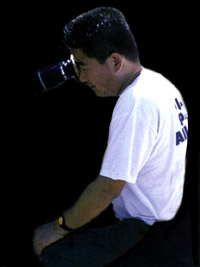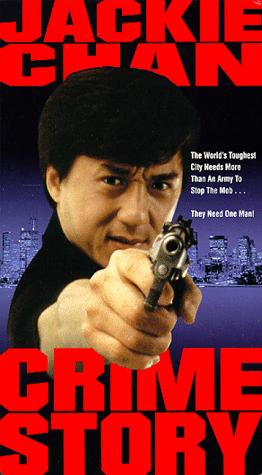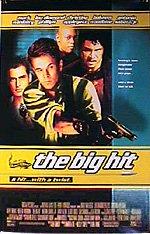


|
|
Kirk Wong Chi-Keung was born in Hong Kong in 1949. After graduating from high school, he attended Craydon College of Art in Leeds, England with the intent of becoming a fashion designer. During his studies, he became interested in stage and set design, and so upon his return to Hong Kong, he began work in that field. Like many in the Hong Kong entertainment industry, Wong quickly diversified his talents and soon began shooting short films for local television networks. Wong's distinctive style (which included shooting on film rather than video) soon caught the attention of a movie producer, who hired Wong as a replacement director for 1981's The Club.
The Club, which told the story of a Triad (Hong Kong gangster) hood trying to keep ownership of a popular local establishment, stood apart from other action films of the time due to its gritty realism. Most of the major actors (including the lead Michael Chan) were current or former Triad members, and Wong took great pains to film in actual locations, even going so far as to securing "protection" from local gangs. Wong's filming style, which took on an almost documentary-like quality, also stood apart from the colorful, fanciful films being produced during the period. Along with films produced by directors such as Tsui Hark and Ringo Lam, the "Hong Kong new wave" (a nod to the European movement of the 1960's) was born.
Wong's second film, Health Warning (1983), bombed, but after he appeared in Long Arm of the Law (1984), Wong found a second career in acting. He played the heavy in several films, including Final Justice (1988). At the same time Wong was acting, he signed with Cinema City studio, where his first project as director was 1988's Gunmen (a film based on the US movie The Untouchables). Along with the money generated from Gunmen, Wong's acting revenue now provided him with enough money so he could develop his own projects.
Wong had always been fascinated by how real life was sometimes stranger than art, and had always strived for realism in his films -- so it was only natural that he combine the two elements. His "true crime" trilogy was a series of successful films based on actual cases. The movies became so popular that they spawned a mini-genre of their own, with films such as 1993's Dr. Lamb)
Wong's first film in the true crime trilogy, 1993's Crime Story, which starred Jackie Chan, would prove to be a huge headache for Wong. He and Chan clashed constantly during filming. Wong originally wanted Jet Li to star in the film, and Chan felt slighted throughout filming, going so far as to actually "take over" for Wong at times and adding extra scenes not originally in the script. Wong made sure to keep tighter control during the filming of the next two movies of the trilogy, Organized Crime and Triad Bureau (1993) and Rock N' Roll Cop (1994). Getting this control seems to have gelled Wong's style, which can be now characterized as using such elements as anti-heroes with "buried" pasts and darkly realistic, often violent storylines.
Like other Hong Kong directors such as John Woo, Wong has recently begun to make films in the US. His first American film, 1998's John Woo-produced The Big Hit (featuring former rapper "Marky" Mark Wahlberg in his first action role) was a flop at the box office, but has since become a cult hit on cable and video. By all accounts, Wong (unlike other HK directors such as Ringo Lam) enjoyed working in America and plans to make more movies there in the future.